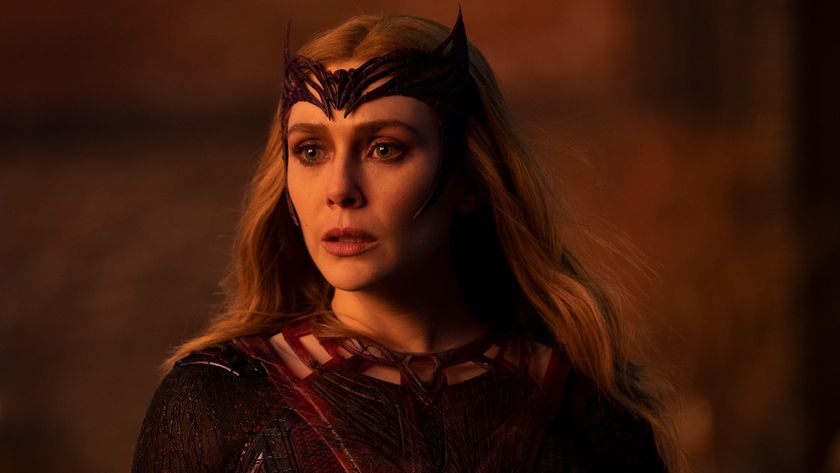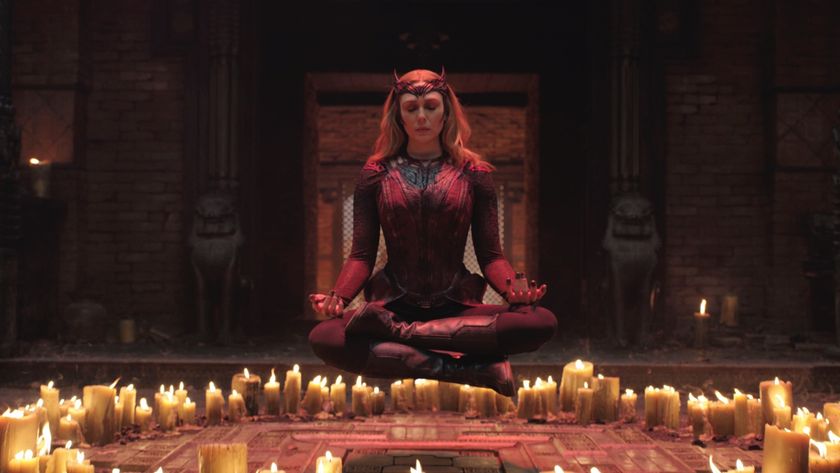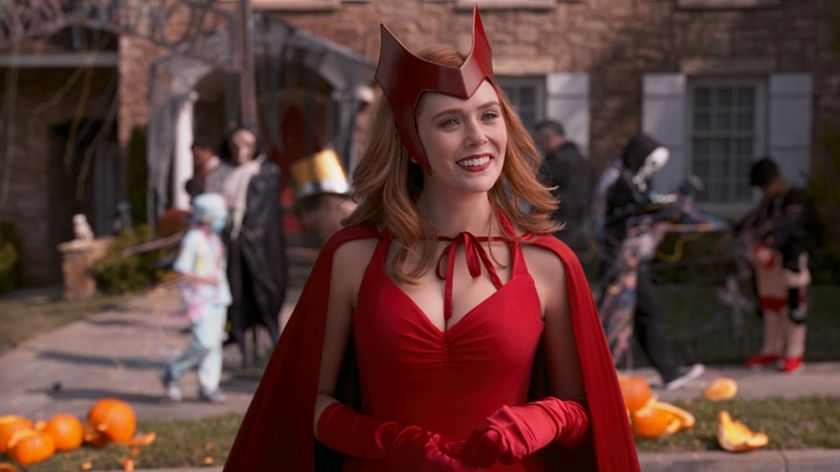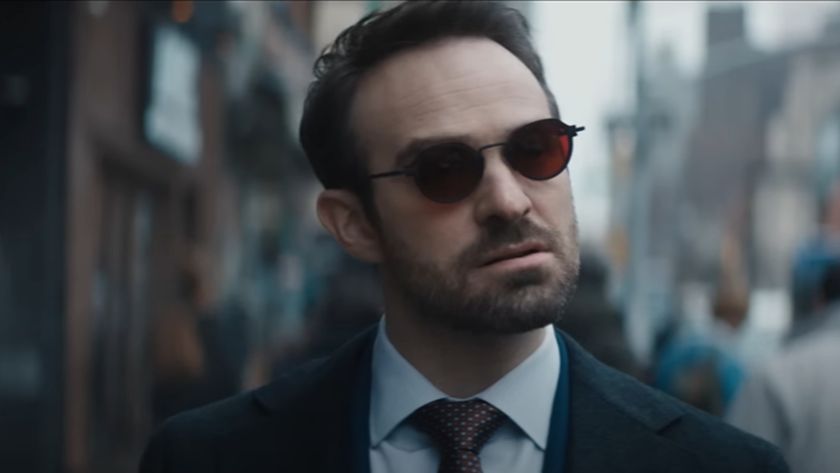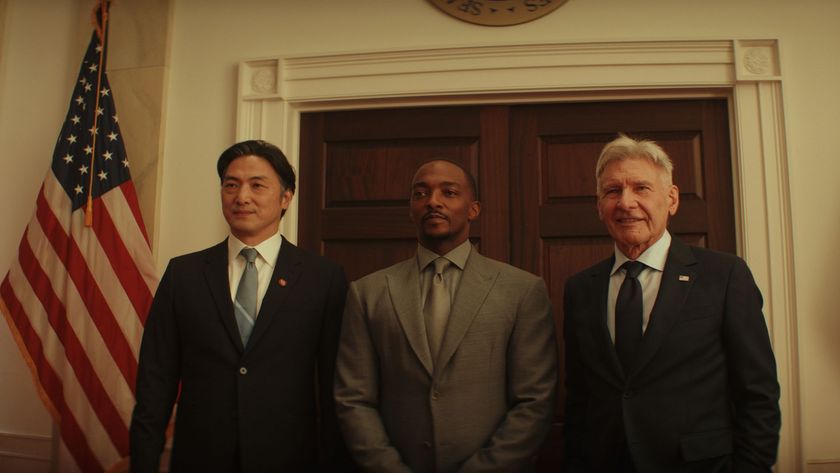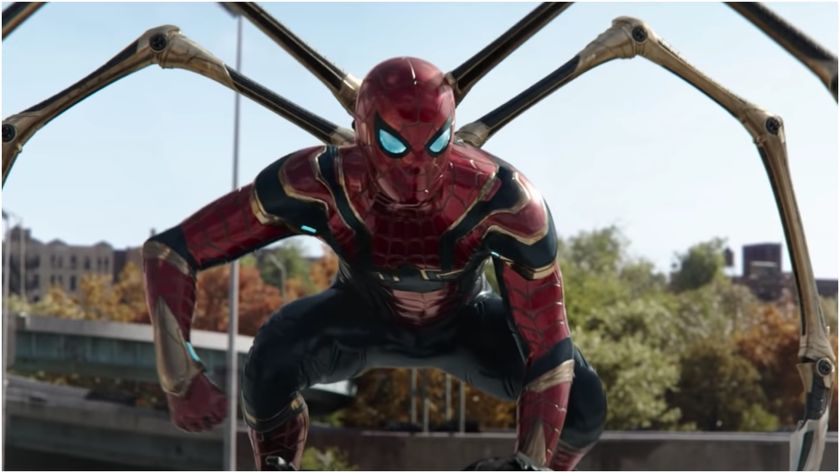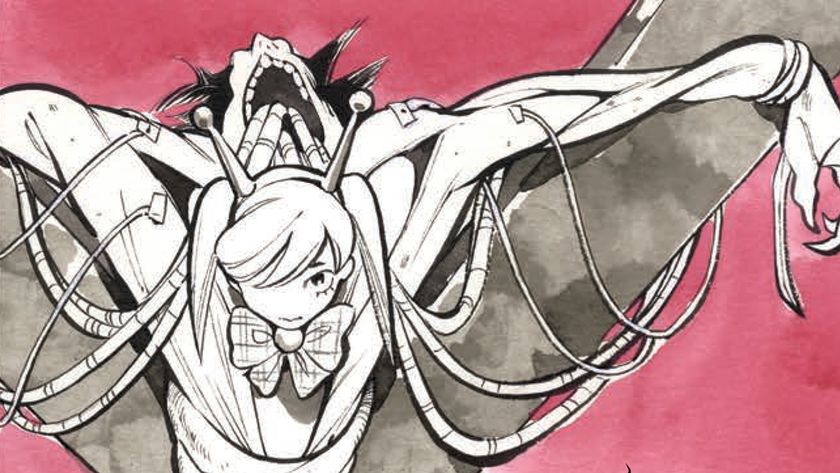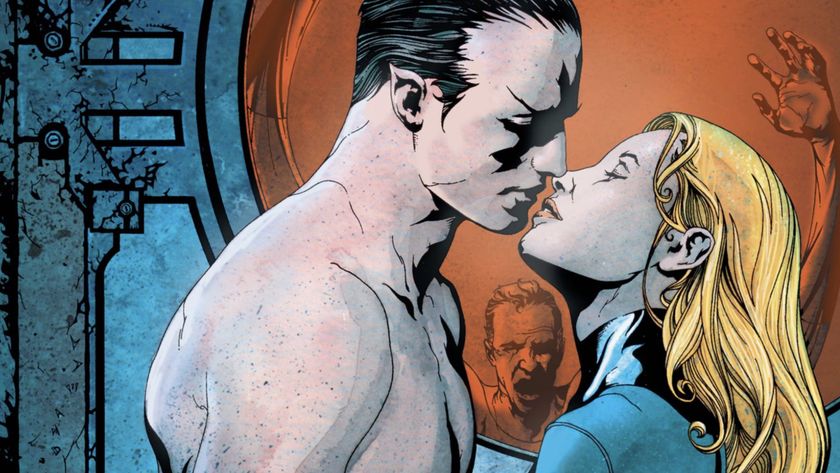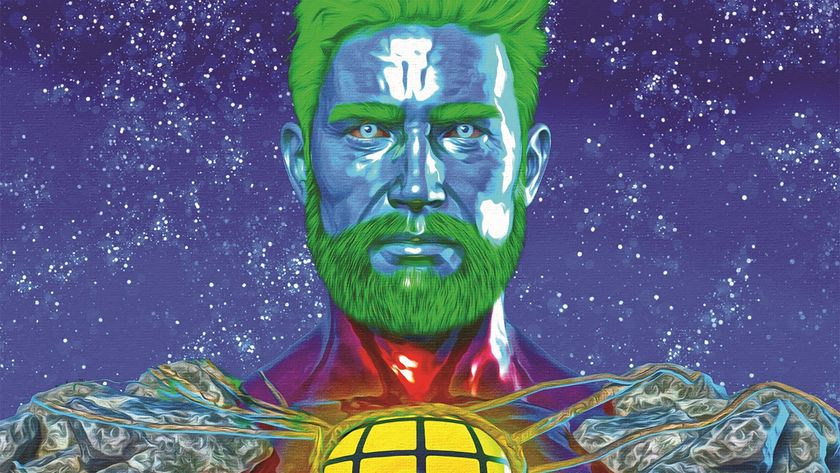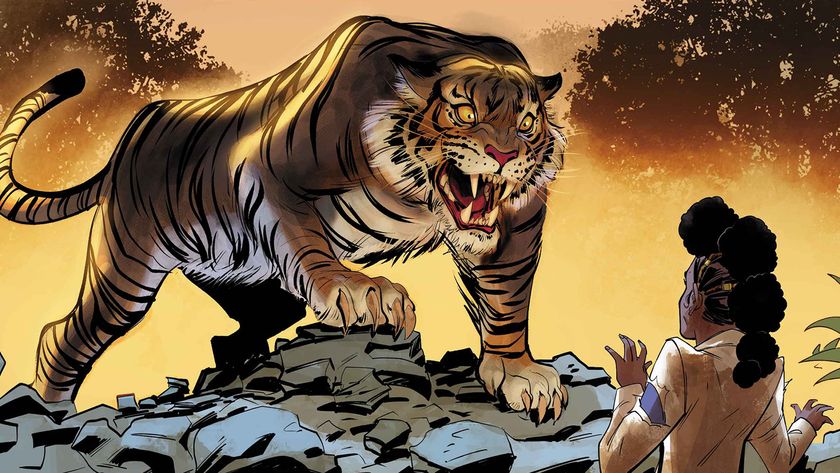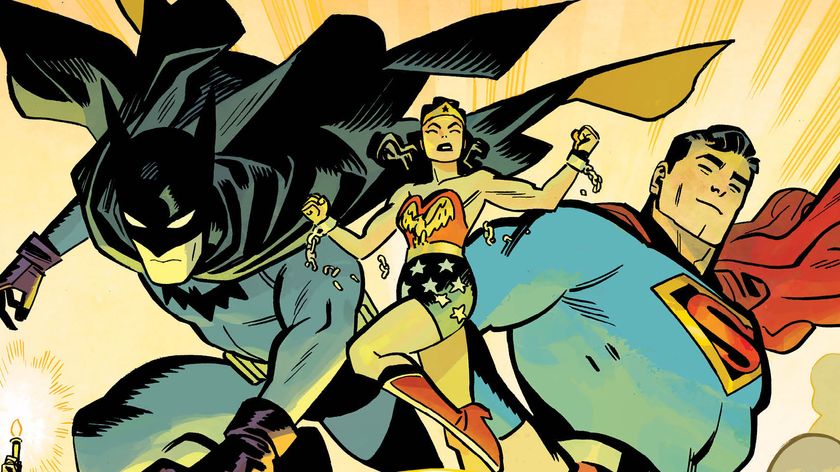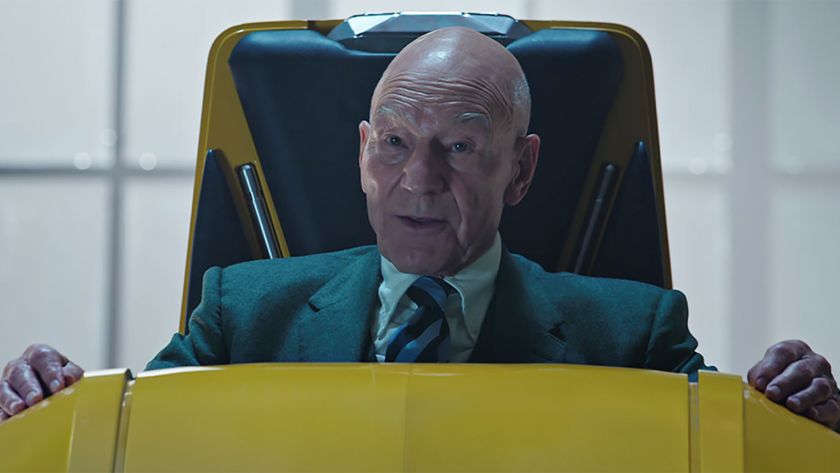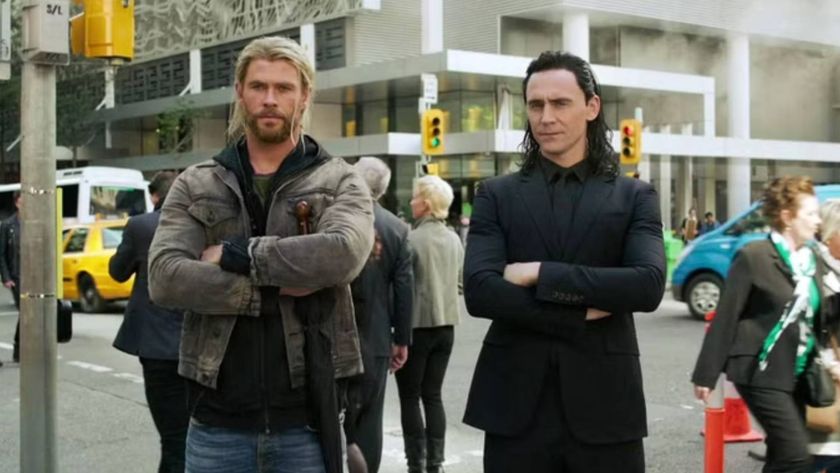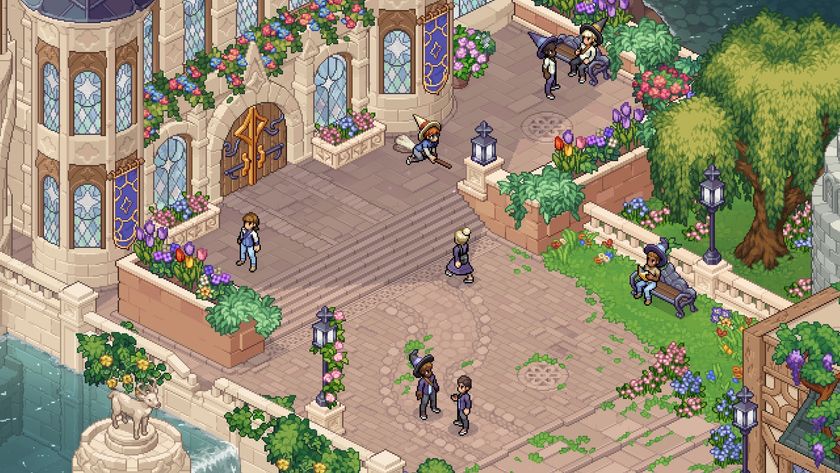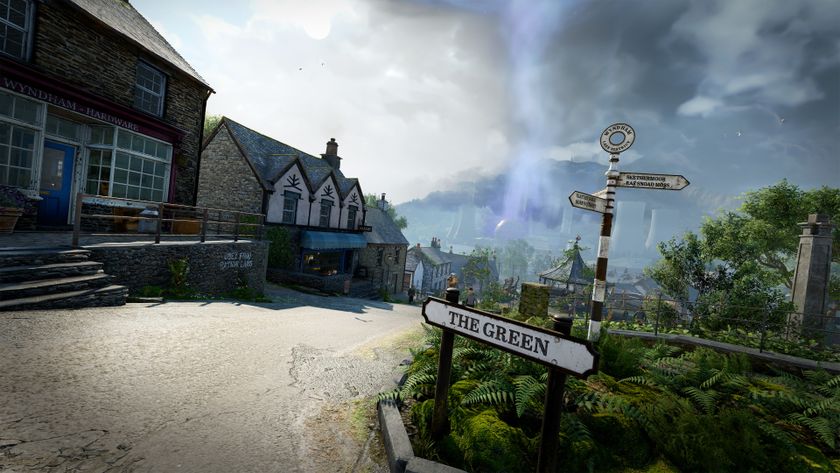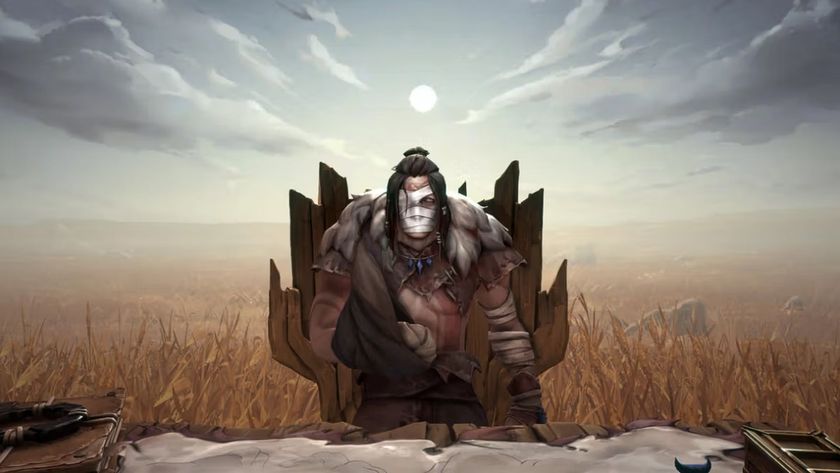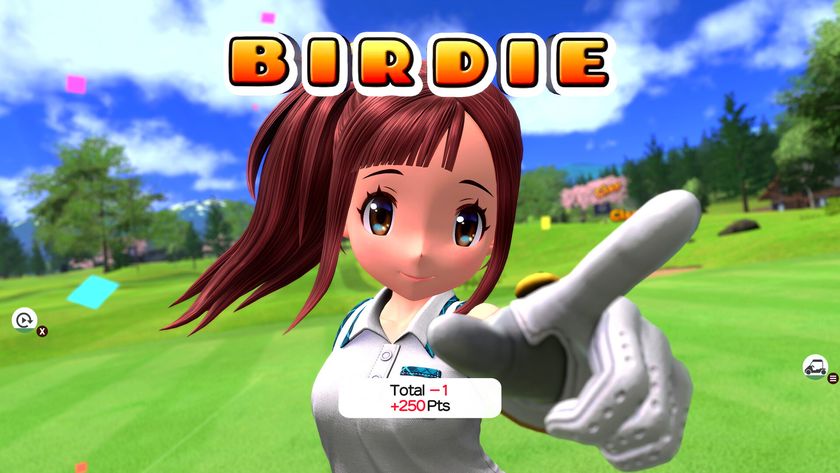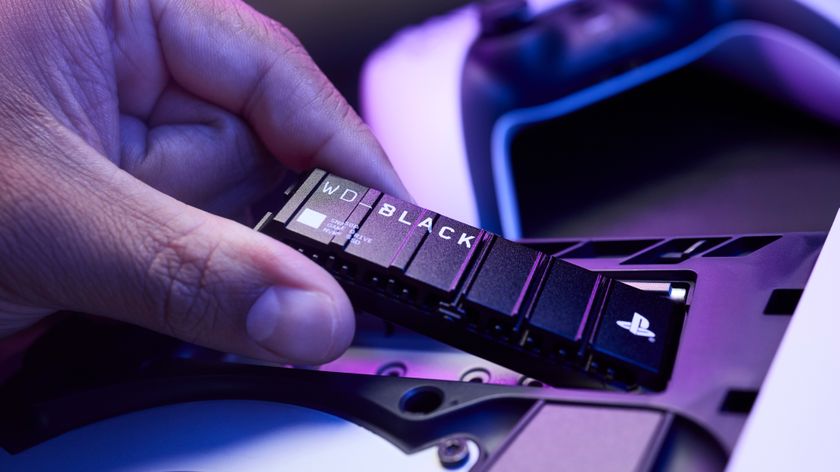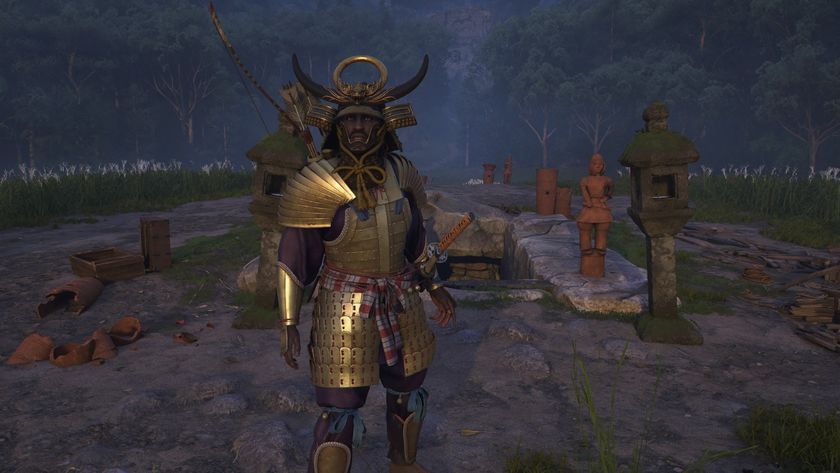Being a pawn and unwitting villain is old hat for the Scarlet Witch
Wanda Maximoff deserves better and its time for the Scarlet Witch to be the hero of her own story
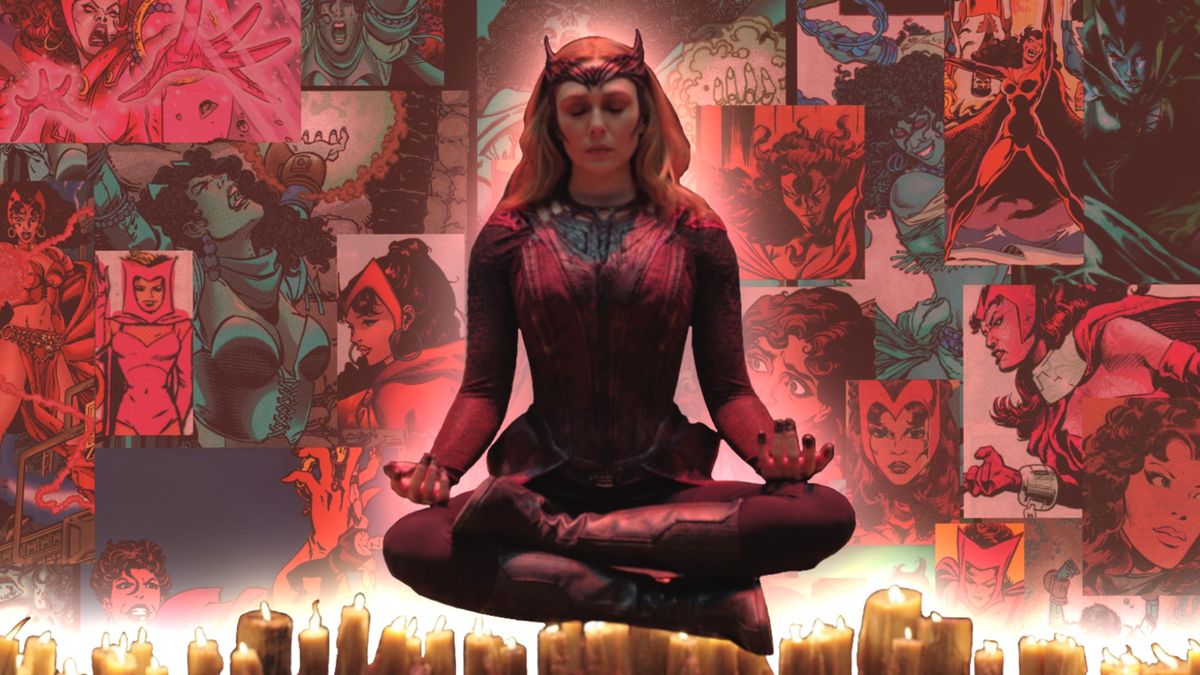
Wanda Maximoff, the Scarlet Witch, has been built up as a key figure in the MCU over the last few years, and the currently in theaters Doctor Strange in the Multiverse of Madness shows exactly how she fits into the overall scheme of things. But her current MCU journey somewhat mirrors the path she's taken in comic books - and frankly, it's all tragic and terrifying.
Since her debut in 1964's X-Men #4, Wanda has been portrayed as one of the most powerful beings in the Marvel Universe, with connections to the larger cosmic mythos of the Multiverse that have often made her the driving force in some of the biggest Marvel stories ever told.
And yet, in all those years, the publisher has never truly given her her due as an A-list hero - instead taking opportunities time and time again to turn her into a villain under the control or influence of darker forces.
Wanda's power to alter probability and rewrite reality has had a profound impact on Marvel continuity, and has been the catalyst for some of the publisher's most consequential events ever - yet somehow, she still seems incapable of altering the course of her own destiny while being driven by the whims and schemes of others.
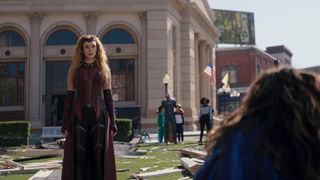
Starting with her adoptive father Magneto, Wanda has nearly always been subject to the machinations of villains who have a greater understanding of her power than even she does, with most of her major stories revolving around the various ways Wanda's control over her own abilities has been negated with often nightmarish outcomes.
The Marvel Cinematic Universe has followed the trend, with Wanda first gaining her powers as a result of volunteering for Hydra experimentation and debuting as a villain in Avengers: Age of Ultron, while being manipulated by the titular evil android. Even WandaVision, which directly grapples with Wanda's trauma and her power to decide her own fate, did so with a storyline based on Agatha Harkness attempting to control Wanda and manipulate her magical abilities.
And of course - spoilers - she's the villain of Doctor Strange in the Multiverse of Madness in a storyline that echoes her comic book journey to find her lost children, while under the magical influence of a larger evil force.
Comic deals, prizes and latest news
Get the best comic news, insights, opinions, analysis and more!
So why is Wanda Maximoff often more relegated to the role of plot device than protagonist, even in stories that center on her growing power and importance in the Marvel Universe? And maybe more importantly, when will Wanda get to be the hero of her own story?
Wanda Maximoff, born as Scarlet Witch
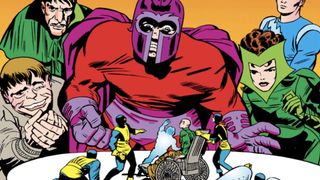
Wanda Maximoff's Marvel Comics career began as a villain alongside her brother Pietro Maximoff/Quicksilver, part of Magneto's Brotherhood of Evil Mutants. But Wanda and Pietro's story quickly became one of the early Marvel Universe's most complicated narratives, painting a picture of mutant outcasts taken in by a manipulative villain promising relief from the evils of a world that rejects them.
When many of the founding Avengers left the team in Avengers #16, Wanda and Pietro were among the new recruits (along with fellow ex-villain Hawkeye) brought in by Captain America to round out the team. Under Cap's guidance, the formerly villainous members of his so-called 'Kooky Quartet' not only reformed into heroes, but became staples of the Avengers even after some of the founders returned, and more new recruits were added.
Wanda in particular found a place among Earth's Mightiest Heroes, quickly becoming the heart and soul of the team for a generation. And when the synthezoid Vision joined the Avengers cast and began a relationship with Wanda, their romance became one of the title's core narratives.
This era of Avengers marks Wanda Maximoff's golden years, both in terms of her place in the Marvel Universe and her ongoing narrative. Her powers consistently escalated, making her one of the team's biggest powerhouses, and the ultimate deciding factor in many of their key adventures. But this wasn't to last, as Wanda's trajectory, both in terms of her power levels and in her character arc, inevitably caught the attention of darker forces.
The Yesterday Quest
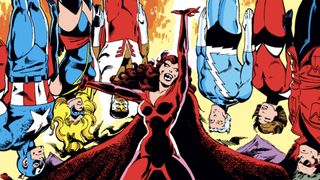
That's a bit of a joke on some level - Mark Gruenwald, the writer who inadvertently began Wanda's next chapter as a hostage to her own power and those who would possess it, was a famously kind person. On the other hand, the villains he introduced as new enemies for Wanda and the Avengers, and the new elements of Wanda's history and powers he established more than qualify as bad influences on the burgeoning Scarlet Witch.
It all started with Chthon, a demonic entity who created the aforementioned Darkhold, and who instilled a portion of his power over chaos in her at birth, making her not just the most potent wielder of the Marvel Universe's version of 'Chaos Magic,' but an intended vessel for his own essence to return to Earth.
Wanda became possessed by Chthon and took down the Avengers, though she was eventually freed, banishing Chthon with her boosted powers. But this boost in magical ability (and her subsequent tutelage by Agatha Harkness in the ways of witchcraft) brought the attention of at least three more of the Marvel Universe's worst villains, all of whom wished to control or destroy Wanda and her abilities.
The Vision Quest
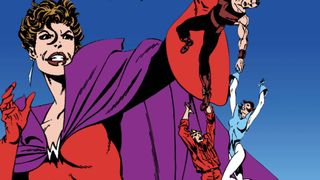
First, there was Mephisto, whose dark influence was secretly instrumental in allowing Wanda to magically manifest her and Vision's twin sons - with Wanda having her first major breakdown when Mephisto revealed his plot and her children faded along with his magic.
Throughout Mephisto's manipulations, the Avengers' old enemy Immortus (one of the primary variants of Kang the Conqueror) also bedeviled her at every turn due to her status as a 'Nexus Being,' a being of unique power in the Marvel Comics Multiverse. Immortus' schemes resulted in the death and rebirth of Wanda's husband Vision without emotion, effectively ending their marriage, and saddling Wanda with yet another cloud of deep psychological trauma.
Many of these stories were told outside of Avengers in a pair of Vision and Scarlet Witch limited series. Though this marked her graduation from simply being an ensemble player, Wanda still wouldn't get her own solo starring title until 1994's Scarlet Witch limited series.
Scarlet Witch: Disassembled
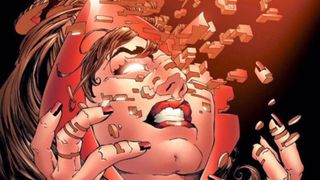
The proverbial straw to break Wanda's psychological back came following the Avengers being trapped in a pocket universe and presumed dead in the core Marvel Universe for a brief period. When they returned (in what became the storyline 'Avengers Disassembled), their old enemy Morgan le Fay (mother of Mordred the Mystic, a servant of Chthon and enemy of Wanda) kidnapped the Scarlet Witch and used her own magical power to steal Wanda's reality writing ability, making the Avengers her servant in her new universe, with Wanda trapped in the villain's dungeons.
This led to another major power upgrade for Wanda after she brought the deceased Avenger Wonder Man back to life to save her from Morgan le Fay's power and later channeled pure 'Chaos Magic' to banish a horde of dead Avengers who were resurrected as zombies by the evil Grim Reaper. But it also led to Wanda's brief, cataclysmic return to out-and-out villainy and the biggest manipulation of her person and power yet.
In what appeared to be a series of random attacks, the Avengers Clint Barton/Hawkeye, Scott Lang/Ant-Man, and Wanda's own ex-husband Vision were killed. But the apparently unconnected events, which also involved attacks on other Avengers, were revealed to be the doing of the Scarlet Witch, who was lashing out and manipulating reality all around her while blaming her involvement with the Avengers, and the members of the team themselves, for all she had endured since joining their ranks.
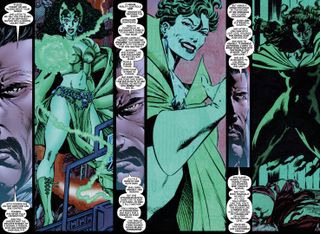
When it was all over, Wanda unleashed the full potential of her reality-warping abilities, creating the House of M reality and rewriting the entire Marvel Universe. But even this wasn't entirely on Wanda's shoulders, as it was soon revealed that her brother Pietro had convinced her to create the new reality.
Wanda's rewritten reality was eventually unmade by the Avengers. But with the world returned to normal, and the manipulation of Wanda's psyche and abilities laid bare, Wanda found a new target for her ire - the whole of mutantkind, especially her adoptive father Magneto (then still believed to be her biological father - more on that in just a moment). Casting one more reality-bending spell, Wanda uttered the phrase "No more mutants," and eliminated the powers of all but 198 of the thousands and thousands of mutants in the Marvel Universe.
After that, Wanda disappeared. But in the wreckage of the Avengers, her twin sons Billy and Tommy, whose magically created souls were born into true physical forms, helped form the Young Avengers, eventually embarking on a quest to find their mother.
And find the Scarlet Witch they did, along with the truth behind her attack on the Avengers in 'Avengers: Disassembled.'
Wanda's children's crusade
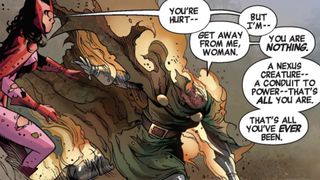
As it turns out, even in a story meant to somewhat redeem Wanda and reckon with the damage of her actions, she's not spared from being someone else's pawn. In the story which brings Wanda back into the fold, Avengers: The Children's Crusade, it's revealed that Wanda was - you guessed it - magically manipulated into her attack on the Avengers by none other than Doctor Doom, himself one of the most powerful sorcerers in the Marvel Universe.
What's more, Doom is revealed to be planning to marry Wanda, whom he's magically brainwashed, to - you guessed it again - fully steal her power over reality and 'Chaos Magic.'
In the end, Wanda is freed from Doom's influence, but ultimately rejected from any reunion with her ex-husband Vision till many years later, and handled with kid gloves by the other Avengers, who can't bring themselves to allow her back on the team. Then, when she finally is allowed back on an Avengers roster, it's the so-called 'Unity Squad' of Uncanny Avengers, whose mutant members take their grudge against Wanda's "No more mutants" spell out on her directly, constantly reminding her of all she's done and been forced to do.
And if that's not enough, her time with the Uncanny Avengers also led to the reveal that, not only are Wanda and her brother Pietro not even actually mutants but genetically engineered super-beings created by the High Evolutionary. By that stunning reveal, Magneto isn't even actually their father, but apparently just some old creep who liked bossing around teenagers back in the day.
Scarlet Witch and the Witches Road
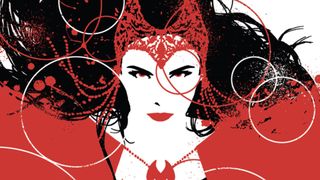
But there is a silver lining in this era for Wanda, as her return eventually led to her first solo ongoing title, James Robinson's Scarlet Witch, which finally made her not just the main protagonist of her own story rather than someone else's pawn.
The story, told through a series of one-and-done issues drawn by different artists to suit each issue's tale, also carved out a niche for Wanda in the magical corner of the Marvel Universe, defining her as the primary wielder and guardian of a unique type of sorcery qualified as 'Witchcraft.'
WandaVision or a Wanda mirage?
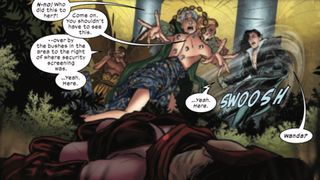
For a little while after WandaVision, which put the MCU Wanda on a trajectory to join the film Doctor Strange in the Multiverse of Madness, it was starting to seem like Marvel Comics was setting Wanda up as the new Sorcerer Supreme following the position opening up in the Death of Doctor Strange limited series.
At the same time that was going on, Wanda was embroiled in her own death and resurrection in the story The Trial of Magneto that redefined her relationship with mutantkind, and even changed some of how she interacts with Marvel's concept of magic. And, thanks to the vagaries of comic book continuity timelines, she was even taking on the Darkhold again in yet another Wanda-centric tale revolving around the tome of evil magic.
But in the end, it was Clea who took on Strange's role as Sorcerer Supreme, while Wanda Maximoff has once again taken a backseat in comics. Still, before her current period of relative dormancy on the page, Wanda had a couple of glimpses of the station she's earned if not ever held as one of the top Marvel heroes.
In the aforementioned Trial of Magneto limited series, Wanda is killed by a mysterious assailant on the mutant island of Krakoa. Even though she's no longer technically considered a mutant, Magneto engineers her resurrection through the Krakoan resurrection protocols.
As it turns out, this is Wanda's plan all along. Despite eventually framing Toad for her "murder," Wanda's death was actually a carefully orchestrated magical suicide, done as part of a complex ritual to both reform her own spiritual self while in her Astral form, but also to open Krakoan resurrection to the spirits of deceased mutants who previously had no genetic records to be brought back from - effectively sealing her final redemption for nearly wiping out mutantkind years before.
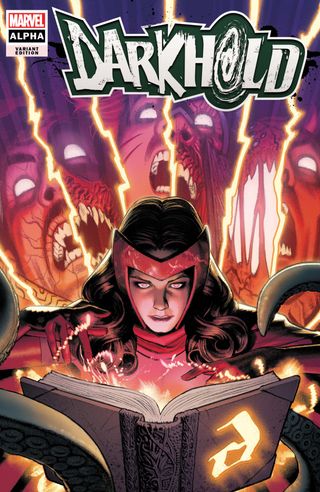
And in Darkhold, Wanda leads a group of Marvel heroes who are themselves corrupted by the Darkhold as part of a plan to take on its author and demonic master, Chthon. In the end, they succeed, and the hero Omega the Unknown is reborn as a result.
Even in these stories, Wanda is subject to the whims of others - first with a trial that ultimately ends in her sending an innocent mutant to eternal exile in Krakoa's pit, which is a particularly villainous act in many ways, and then in Darkhold where she gives herself over to the demon that's haunted her her whole life to ultimately give another, more obscure hero the spotlight.
That's not to say there's no effort to make Wanda more of her own hero and to provide her with more power and agency - stated goals of the creators and stories of Trial of Magneto and Darkhold. But there's an undercutting of that growth in not having her appear since, while the MCU takes the opportunity to once again turn her into a villain in one of the highest profile heel-turns for the Marvel Cinematic Universe yet, before seemingly killing her off.
The MCU may have some redemptive tricks up its sleeve for Wanda yet, but in once again defining the loss of her family and the escalation of her powers beyond her control as her key narrative, there's something nagging about the ongoing revisitation of these themes for a character who is simultaneously meant to be growing more powerful and more aware.
Whatever happens next for Wanda Maximoff, the Scarlet Witch, it's high time she moved out of the shadow of evil forces and powerful villains and into her own role as one of the chief magic users and wisest witches in the Marvel Universe - and thankfully, Marvel Comics has at least positioned her to make that change in a positive way, whenever they see fit to bring her back.
Here are the best Scarlet Witch stories to date.
I've been Newsarama's resident Marvel Comics expert and general comic book historian since 2011. I've also been the on-site reporter at most major comic conventions such as Comic-Con International: San Diego, New York Comic Con, and C2E2. Outside of comic journalism, I am the artist of many weird pictures, and the guitarist of many heavy riffs. (They/Them)
